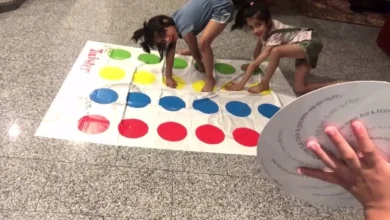The Role of Forgiveness in Healing Marital Conflicts

Every relationship faces its share of challenges, but in marriage, conflicts can sometimes cut deep—leaving behind resentment, emotional distance, and pain. While arguments and misunderstandings are natural in any long-term relationship, what truly determines the strength of a marriage is not the absence of conflict, but the ability of both partners to forgive and move forward.
Forgiveness plays a powerful role in rebuilding trust, restoring emotional closeness, and promoting long-term healing. With the right guidance—often through couple counselling and even family or teen counselling—forgiveness can become the cornerstone of a renewed and healthy marital relationship.
1. Understanding Forgiveness in Marriage
Forgiveness in a marriage isn’t about pretending nothing happened or excusing hurtful behaviour. Instead, it’s a conscious decision to let go of resentment and allow healing to begin. When one or both partners hold on to anger, the relationship becomes emotionally heavy—communication suffers, affection fades, and small disagreements can quickly turn into major conflicts.
True forgiveness is an act of emotional courage. It involves acknowledging the hurt, understanding the reasons behind it, and choosing to focus on growth rather than revenge or blame. In doing so, couples open the door to empathy, understanding, and renewal.
2. Why Holding Grudges Damages Relationships
Unresolved resentment can quietly erode the foundation of a marriage. When couples avoid forgiveness, they often fall into negative cycles—silent treatment, defensiveness, or repeated arguments about the same issue.
Over time, this creates emotional distance, making it harder for partners to connect and trust each other again. Many marriages that fail aren’t destroyed by a single mistake, but by years of unhealed hurt and unresolved emotional wounds.
Forgiveness interrupts this destructive cycle. It helps both partners release emotional burdens and begin to see each other not as enemies, but as teammates working toward a shared goal—healing and harmony.
3. The Role of Couple Counselling in Fostering Forgiveness
Forgiveness doesn’t always come naturally—especially when trust has been broken or communication has broken down. That’s where counselling for couples near me becomes essential.
A professional relationship counsellor creates a safe and neutral environment where both partners can express their feelings openly. Through structured sessions, couples can:
- Understand the root causes of their conflicts
- Learn how to communicate without blame or defensiveness
- Explore unresolved emotions in a supportive setting
- Develop empathy for each other’s perspectives
A skilled counsellor helps partners rebuild trust step by step, guiding them toward forgiveness not as a forced act, but as a process of emotional liberation. When couples truly forgive, they make space for renewed intimacy, patience, and compassion in the relationship.
4. Forgiveness as a Path to Personal Growth
Forgiveness isn’t just beneficial for the relationship—it’s deeply healing for the individual as well. Holding onto anger and resentment keeps people emotionally stuck, leading to stress, anxiety, and even depression.
Through counselling, individuals learn that forgiving doesn’t mean accepting harmful behaviour; it means choosing peace over pain. This internal shift allows both partners to grow emotionally and to develop greater emotional intelligence, which benefits all aspects of their lives.
5. The Ripple Effect: How Counselling for Teens Strengthens Marital Relationships
Marriage doesn’t exist in isolation—it’s part of a larger family system. When marital conflicts remain unresolved, the effects often ripple outward, impacting children and teenagers in the home. Teens are especially sensitive to emotional tension between parents and may respond with withdrawal, anger, or anxiety.
That’s why counselling for teens can also play a vital role in building a healthier marital and family dynamic. Teen counselling helps young people:
- Understand and process the emotions they experience at home
- Develop healthier ways to cope with family stress
- Communicate more openly with parents
When teens feel emotionally supported and safe, it reduces overall family tension and promotes a more stable and loving home environment. In turn, this helps parents focus more on healing their own relationship rather than managing constant conflict at home.
6. Building a Culture of Forgiveness at Home
Forgiveness is not a one-time event—it’s a continuous practice that strengthens with effort and awareness. Couples who consciously choose forgiveness cultivate a home environment based on respect, empathy, and understanding.
In such homes, children and teens also learn by example. They see that love and forgiveness are more powerful than anger and pride. Over time, this culture of forgiveness not only heals current wounds but also builds resilience for future challenges.
7. Moving Forward Together
Rebuilding a marriage after conflict or betrayal is not easy. It requires honesty, patience, and often the support of a professional counsellor who can guide the couple through the process. But when forgiveness takes root, relationships can transform in profound ways—reviving emotional intimacy, rebuilding trust, and restoring hope.
Forgiveness allows couples to stop reliving the pain of the past and start creating a future based on compassion and partnership. And with the added support of couple counselling and teen counselling, families can grow stronger together—learning to communicate, heal, and love more deeply.
Final Thoughts
Forgiveness is the heart of healing in any marriage. It doesn’t erase the past, but it reshapes the future—turning pain into understanding and conflict into connection.
Through relationship counselling, couples can rediscover the emotional tools needed to move forward. And by involving the entire family, including teens, in the healing journey, forgiveness becomes not just an act between two people—but a foundation for a peaceful, loving, and lasting family bond.




